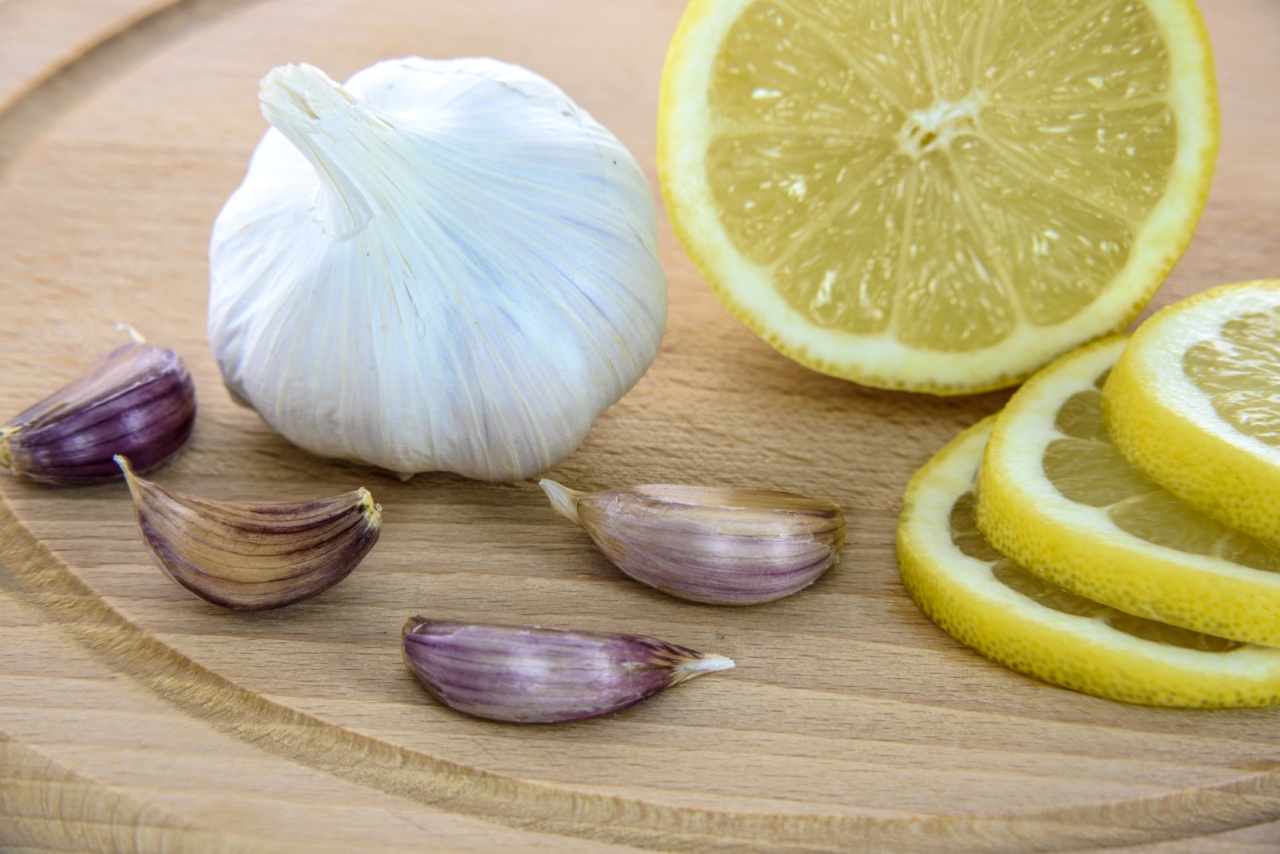Garlic has been used for thousands of years as both a food ingredient and a medicine. It has been used by different cultures around the world for both culinary and medicinal purposes.
Garlic has potent antibacterial, antifungal, antiviral, and antiprotozoal properties, which make it an effective natural remedy for various illnesses.
The Health Benefits of Garlic
Garlic contains a compound called allicin, which is responsible for its medicinal properties. Allicin is a sulfur-containing compound that is produced when garlic is crushed or chopped. The health benefits of garlic include:.
- Garlic Boosts Immunity: Garlic contains antioxidants that help to boost the immune system. This means that consuming garlic can help to prevent various illnesses and diseases.
- Garlic Helps to Fight Infections: Garlic has natural antibacterial and antifungal properties, which make it an effective natural remedy for various infections. It can be used to treat respiratory infections, dental infections, and skin infections.
- Garlic May Lower Blood Pressure: Studies have shown that consuming garlic can help to lower blood pressure in people with hypertension.
- Garlic May Lower Cholesterol: Garlic has been shown to lower LDL cholesterol levels, which is the “bad” cholesterol that can cause heart disease.
- Garlic May Reduce Cancer Risk: Studies have shown that consuming garlic may reduce the risk of certain types of cancer, including colon and stomach cancer.
How to Use Garlic as a Natural Antibiotic
Garlic can be used in a number of ways to help fight infections and boost immunity. Here are some ways to use garlic as a natural antibiotic:.
Raw Garlic
Eating raw garlic is one of the best ways to get the full medicinal benefits of this powerful herb. Crush or chop a clove of garlic and let it sit for a few minutes before eating it, to allow the allicin to develop.
You can eat raw garlic on its own, or add it to recipes for extra flavor and health benefits.
Garlic Tea
To make garlic tea, crush a clove of garlic and steep it in hot water for a few minutes. You can add honey and lemon to improve the taste. Drink garlic tea a few times a day to help fight infections and boost immunity.
Garlic Supplements
If you don’t like the taste of raw garlic, you can take garlic supplements instead. Look for supplements that contain allicin, to ensure you are getting the full medicinal benefits of garlic.
Precautions When Using Garlic as a Natural Antibiotic
Although garlic is generally safe to use as a natural antibiotic, there are some precautions you should be aware of:.
- Garlic can cause digestive issues: Eating too much raw garlic can cause digestive issues such as gas, bloating, and diarrhea. Start with a small amount and gradually increase the amount you eat, to allow your digestive system to adjust.
- Garlic can interact with certain medications: Garlic can interact with certain medications, including blood thinners. If you are taking medication, consult with a healthcare provider before taking garlic supplements.
- Allergic reactions: Some people may be allergic to garlic. If you experience symptoms such as hives, difficulty breathing, or swelling of the face, seek medical attention immediately.
Conclusion
Garlic is a powerful natural antibiotic that has been used for thousands of years to treat various illnesses. Its medicinal properties come from allicin, a sulfur-containing compound that is produced when garlic is crushed or chopped.
Garlic can be used in a number of ways to help fight infections and boost immunity, including eating it raw, drinking garlic tea, or taking garlic supplements. However, it is important to be aware of the precautions when using garlic as a natural antibiotic, including potential digestive issues and interactions with certain medication.






























